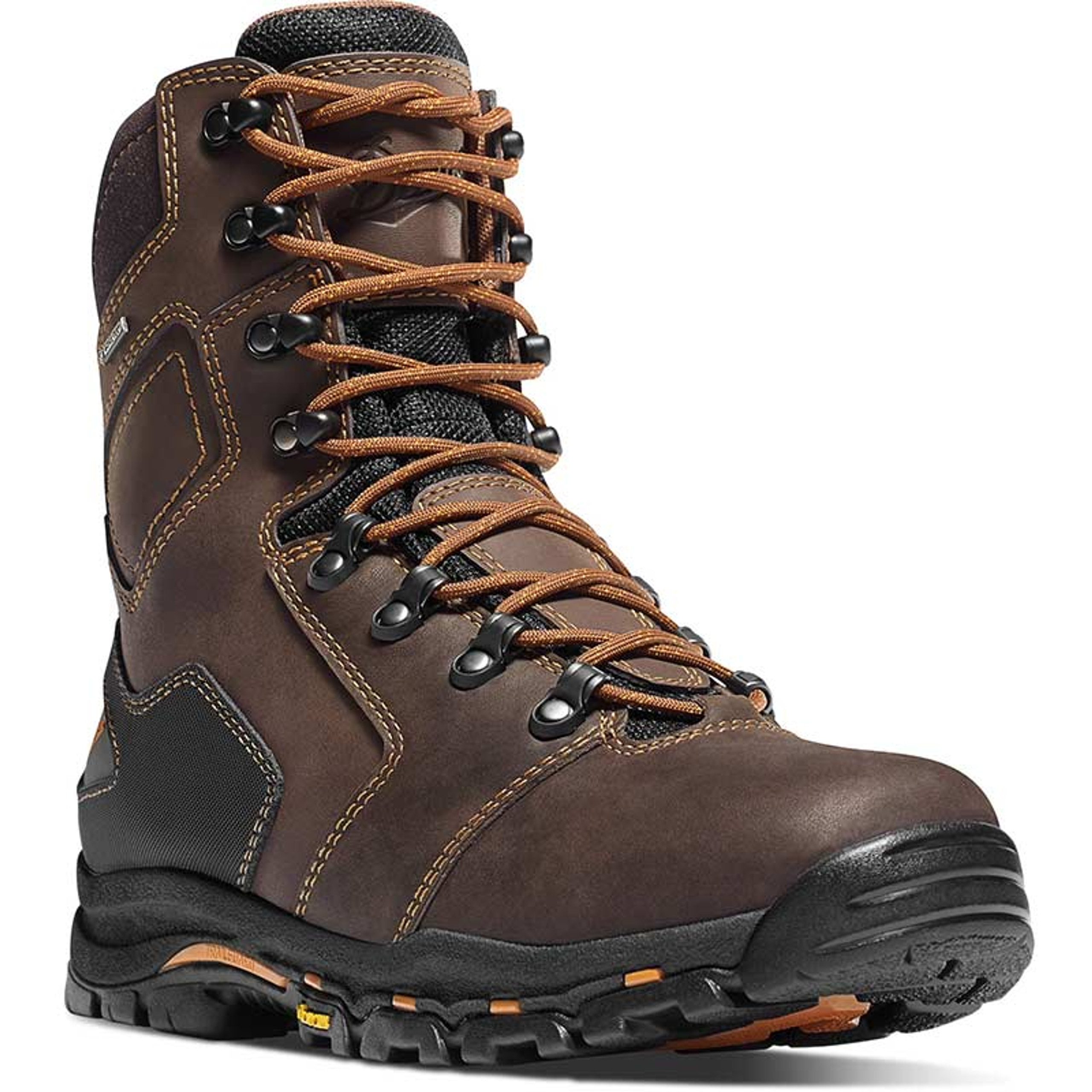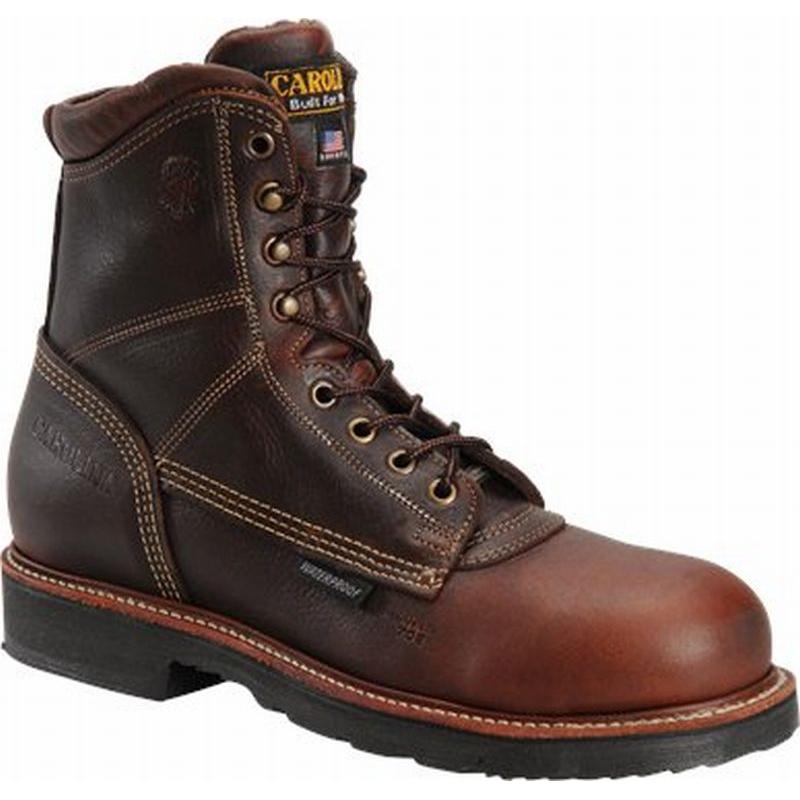What Makes Soft Toe Work Boots Different?
When it comes to workplace footwear, there are several options available to protect your feet. But what is soft toe work boots, and how do they differ from their steel toe counterparts? Soft toe work boots are designed to provide protection and comfort without the added weight and stiffness of a steel toe cap. This makes them an attractive option for workers who need to be on their feet for extended periods or require greater flexibility in their footwear. While they may not offer the same level of protection as steel toe boots, soft toe work boots are still a reliable choice for many industries, including construction, manufacturing, and warehousing.
The benefits of soft toe work boots are numerous. For one, they offer increased flexibility, allowing for a greater range of motion and reduced fatigue. They are also generally lighter in weight, making them ideal for workers who need to move quickly or climb ladders. Additionally, soft toe work boots are often more comfortable than their steel toe counterparts, reducing the risk of discomfort and injury. Overall, soft toe work boots provide a unique combination of protection, comfort, and flexibility that makes them an excellent choice for many workers.
Understanding the Importance of Foot Protection in the Workplace
In many industries, foot injuries are a common occurrence. Construction workers, manufacturers, and warehouse employees are all at risk of suffering from foot-related injuries, which can be debilitating and even career-ending. In fact, according to the Occupational Safety and Health Administration (OSHA), foot injuries are one of the most common types of workplace injuries, accounting for thousands of lost workdays each year.
The risks of foot injuries are numerous and varied. Heavy objects can fall and crush feet, sharp edges can cause lacerations, and slippery surfaces can lead to slips and falls. Additionally, workers who are required to stand for long periods or walk on uneven terrain are at risk of developing chronic foot problems, such as plantar fasciitis or Achilles tendonitis.
Wearing proper footwear is essential to preventing foot injuries and complying with safety regulations. Soft toe work boots, in particular, offer a unique combination of protection, comfort, and flexibility that makes them an attractive option for many workers. By understanding the importance of foot protection in the workplace, workers can take the necessary steps to protect their feet and prevent injuries.
How to Select the Best Soft Toe Work Boots for Your Job
When it comes to selecting the right soft toe work boots for your job, there are several factors to consider. The first step is to identify the specific requirements of your job, including the type of terrain you’ll be working on, the weight and size of the objects you’ll be handling, and the level of protection you need. For example, if you work in construction, you may need boots with a higher level of ankle support and protection from heavy objects.
In addition to job requirements, it’s also important to consider your foot type and personal preferences. If you have flat feet or other foot issues, you may need boots with additional arch support or cushioning. You should also think about the style and design of the boot, as well as the materials used in its construction. For example, if you work in a wet or slippery environment, you may want boots with a waterproof membrane and slip-resistant outsole.
Some popular brands and models of soft toe work boots include Timberland’s Boondock boot, Dr. Martens’ Ironbridge boot, and Thorogood’s American Made boot. These boots offer a range of features and benefits, including comfort, durability, and protection. By considering your specific needs and preferences, you can find the perfect pair of soft toe work boots for your job.
Other factors to consider when selecting soft toe work boots include the level of comfort and flexibility, the weight and durability of the boot, and the level of protection provided. You should also think about the maintenance and care requirements of the boot, as well as the warranty and return policy of the manufacturer. By taking the time to research and compare different models, you can find the best soft toe work boots for your needs and budget.
The Anatomy of a Soft Toe Work Boot: Key Features to Look For
When it comes to soft toe work boots, understanding the anatomy of the boot is crucial in selecting the right one for your job. A soft toe work boot is composed of several key components, each playing a vital role in providing comfort, protection, and performance.
The upper material of a soft toe work boot is typically made of durable materials such as leather, synthetic materials, or a combination of both. The upper material provides protection from the elements and abrasion, while also offering breathability and flexibility. Look for boots with high-quality upper materials that can withstand the demands of your job.
The midsole is the layer of cushioning and support between the upper material and the outsole. It provides shock absorption, arch support, and stability, making it an essential component of a soft toe work boot. A good midsole should be made of a durable, shock-absorbing material that can withstand heavy use.
The outsole is the bottom layer of the boot that comes into contact with the ground. It provides traction, grip, and slip resistance, making it a critical component of a soft toe work boot. Look for boots with outsoles made of high-quality rubber or synthetic materials that can provide excellent grip and traction on various surfaces.
The toe cap is the protective layer that covers the toe area of the boot. While soft toe work boots do not have a steel toe cap, they still provide protection from impact and compression. Look for boots with toe caps made of durable materials that can withstand heavy use and provide adequate protection.
Other key features to look for in a soft toe work boot include the lacing system, ankle support, and cushioning. A good lacing system should provide a secure fit, while ankle support should provide stability and protection. Cushioning should be adequate to provide comfort and reduce fatigue.
By understanding the anatomy of a soft toe work boot, you can make an informed decision when selecting the right boot for your job. Look for boots that meet your specific needs and provide the necessary comfort, protection, and performance to get the job done.
Soft Toe Work Boots vs. Steel Toe Boots: Which is Right for You?
When it comes to choosing the right work boots, one of the most important decisions is whether to opt for soft toe work boots or steel toe boots. Both types of boots have their own unique benefits and drawbacks, and understanding the differences between them is crucial in making an informed decision.
Steel toe boots are designed to provide maximum protection from heavy objects and compression. They feature a steel toe cap that meets or exceeds safety standards, making them ideal for industries such as construction, manufacturing, and warehousing. However, steel toe boots can be heavy, rigid, and uncomfortable, which can lead to fatigue and discomfort during long hours of work.
Soft toe work boots, on the other hand, offer a more comfortable and flexible alternative. They do not have a steel toe cap, but still provide protection from impact and compression. Soft toe boots are ideal for jobs that require flexibility and mobility, such as warehousing, delivery, and landscaping. They are also a great option for workers who need to climb ladders or work in tight spaces.
When deciding between soft toe work boots and steel toe boots, consider the specific requirements of your job. If you work in an industry that requires maximum protection from heavy objects, steel toe boots may be the better choice. However, if you need a boot that provides comfort, flexibility, and mobility, soft toe work boots are an excellent option.
It’s also important to consider the safety regulations of your industry. While soft toe work boots may not meet the same safety standards as steel toe boots, they still provide adequate protection for many jobs. Be sure to check with your employer or safety regulations to determine the minimum safety requirements for your job.
Ultimately, the decision between soft toe work boots and steel toe boots comes down to your specific needs and preferences. By understanding the benefits and drawbacks of each type of boot, you can make an informed decision that meets your needs and keeps your feet safe and comfortable on the job.
Comfort and Performance: The Benefits of Soft Toe Work Boots
Soft toe work boots are designed to provide comfort and performance in the workplace. Unlike steel toe boots, which can be heavy and rigid, soft toe boots offer a more flexible and lightweight alternative. This makes them ideal for jobs that require mobility, flexibility, and comfort.
One of the primary benefits of soft toe work boots is their ability to reduce fatigue. By providing a more comfortable and supportive fit, soft toe boots can help reduce the physical demands of a job, allowing workers to perform at a higher level for longer periods of time. This is especially important in industries such as construction, manufacturing, and warehousing, where workers may be on their feet for extended periods.
Soft toe work boots also offer improved flexibility, making it easier to move around and perform tasks that require agility and mobility. This is particularly important in jobs that require climbing, bending, or twisting, such as electrical work, plumbing, or HVAC repair.
In addition to their comfort and flexibility benefits, soft toe work boots also provide enhanced mobility. By allowing for a more natural range of motion, soft toe boots can help workers move more efficiently and effectively, reducing the risk of injury and improving overall job performance.
Comfort is also a critical factor in reducing the risk of injuries. When workers are comfortable, they are more focused and alert, which can help prevent accidents and injuries. Additionally, comfortable footwear can reduce the risk of foot problems, such as plantar fasciitis, bunions, and Achilles tendonitis, which can be debilitating and costly to treat.
Overall, the comfort and performance benefits of soft toe work boots make them an excellent choice for workers who need a boot that can keep up with their demanding job requirements. By providing a comfortable, flexible, and supportive fit, soft toe boots can help workers perform at their best, while also reducing the risk of injuries and improving overall job satisfaction.
Soft Toe Work Boots for Specific Industries: Meeting Unique Challenges
Different industries present unique challenges and requirements when it comes to footwear. Soft toe work boots can be tailored to meet the specific needs of various industries, providing workers with the protection, comfort, and performance they need to get the job done.
In the construction industry, for example, soft toe work boots need to be able to withstand the rigors of heavy construction work, including rough terrain, heavy materials, and hazardous conditions. Look for boots with rugged outsoles, breathable uppers, and advanced ankle support to help prevent injuries.
In manufacturing and warehousing, soft toe work boots need to be able to keep up with the fast-paced and physically demanding nature of the job. Boots with slip-resistant outsoles, comfortable insoles, and flexible uppers can help workers move quickly and efficiently while reducing the risk of slips, trips, and falls.
In the electrical and HVAC industries, soft toe work boots need to be able to provide protection from electrical hazards and extreme temperatures. Look for boots with electrical hazard protection, heat-resistant materials, and advanced insulation to keep workers safe and comfortable.
In landscaping and outdoor industries, soft toe work boots need to be able to withstand the elements and provide traction on uneven terrain. Boots with waterproof membranes, aggressive tread patterns, and breathable uppers can help workers stay dry and comfortable while working in wet or muddy conditions.
By understanding the unique challenges and requirements of each industry, workers can choose soft toe work boots that are specifically designed to meet their needs. Whether it’s rugged construction work, fast-paced manufacturing, or outdoor landscaping, soft toe work boots can provide the protection, comfort, and performance workers need to get the job done safely and effectively.
Conclusion: Why Soft Toe Work Boots Are a Smart Choice for Any Job
In conclusion, soft toe work boots offer a unique combination of protection, comfort, and performance that makes them an excellent choice for workers in various industries. By understanding the benefits and advantages of soft toe work boots, workers can make informed decisions about their footwear and ensure a safe and comfortable working experience.
Whether you’re working in construction, manufacturing, warehousing, or any other industry, soft toe work boots can provide the protection and comfort you need to get the job done. With their increased flexibility, reduced weight, and enhanced mobility, soft toe work boots can help reduce the risk of injuries and improve overall job performance.
When it comes to choosing the right footwear for the job, soft toe work boots are a smart choice. They offer a range of benefits and advantages that make them an excellent option for workers who need a boot that can keep up with their demanding job requirements. By considering the unique challenges and requirements of your industry, you can find a soft toe work boot that meets your specific needs and helps you perform at your best.
So why settle for a steel toe boot when you can have the comfort and performance of a soft toe work boot? With their innovative design and advanced features, soft toe work boots are the perfect choice for workers who want to stay safe, comfortable, and productive on the job. Remember, when it comes to footwear, what is soft toe work boots? They’re the smart choice for any job.






.jpg)


